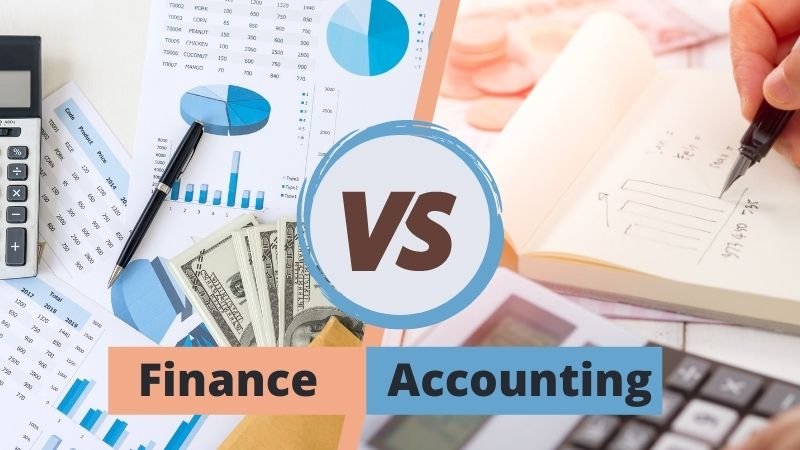If you like dealing with numbers, pursuing a career in accounting or finance might be an excellent choice for you. However, because the subjects overlap, you may be unclear which degree to pursue. As a result, it’s critical to take a break from your program search and ask yourself some vital questions. Lots of people seem confused about Finance Vs Accounting. These are two of the most prevalent job paths for university graduates, and each one has its own set of benefits. Still, in this blog, we are going to discuss everything regarding Finance Vs Accounting in detail.
Overview Of FINANCE?
Finance is the study of how a person or organization develops and utilizes capital or handles their money. Investing, borrowing, lending, budgeting, and forecasting are all examples of actions that fall under this umbrella. Personal finance, corporate finance, and governmental finance may be split down to focus on the various people involved. While these categories often encompass a similar set of operations, each form of finance has its own set of intricacies that reflect each community’s restrictions, considerations, and worries.
Overview Of ACCOUNTING?
On the other side, accounting is the act of gathering, reporting, and disseminating financial data about a person, company, or organization. Accounting is focused on recording an accurate snapshot of a party’s financial status at a certain point in time, rather than making strategic financial decisions—a technique that produces the data on which finance operations are often based.
Accounting tasks include documenting transactions, gathering financial data, preparing reports, and evaluating and summarising results. Detailed financial documents, such as income statements, balance sheets, and cash flow statements, are frequently included in the outcomes.
Finance Vs Accounting: Major Differences You Should Know
Containing Financial Performance
This distinction in scope highlights a difference between accounting and finance’s basic ideas.
Most firms use the accrual method of accounting, which records transactions as they are agreed upon rather than as they are performed. It enables credit card transactions as well as postponed payments. It works because income and costs will level out over time, allowing for a more realistic depiction of economic reality. It will enable you to examine a company’s sales, price, and profit growth year over year without considering one-time occurrences, seasonal, or cyclical fluctuations.
Evaluating Value
Another element of distinction between the disciplines is their attitude to value. In accounting, the conservative principle indicates that corporations should report lower anticipated values for their assets and higher estimates for their liabilities. If you don’t know how important something is, you count it as zero. It supports businesses in avoiding overextending themselves by undervaluing their assets and overvaluing their liabilities.
In finance, an analytical process called valuation determines the value of a business, project, or asset. Discounted cash flow analysis is the gold standard, and it is used to analyze a sequence of cash flows over time. The discount rate (as a percentage) adjusts for opportunity cost, inflation, and risk, bringing the cost of a projected stream of cash to its current value.
Scope and Focus
On different levels of the asset management spectrum, finance and accounting work together. Finance is essentially forward-looking; all value comes from the future, unlike accounting, which offers a picture of an organization’s financial status utilizing past and present transactional data.
The “accounting equation,” which is: Assets = Liabilities + Owners’ Equity, provides insight into a company’s financial status in accounting.
This formula considers what a firm possesses (assets), what it owes (liabilities), and the remaining equity that belongs to shareholders (owner’s equity). It also has to be balanced—the assets on the left should match the claims against the assets on the right. It’s a fundamental way to see if corporate accounting records correctly represent transactions over time.
When it comes to evaluating performance via the perspective of money, cash reigns supreme. Unlike accounting, which relies on transactional data, finance examines an organization’s ability to earn and spend some money using a variety of metrics.
The most crucial is free cash flows, which look at how much money a firm has to distribute to investors or reinvest after all expenditures have been paid. It’s a good predictor of profitability, and it may use to make current investment decisions based on the likelihood of a future profit.
Final words
We have already discussed all finance and accounting in detail, and we have also discussed the significant differences between Finance Vs Accounting. Thus, we hope that our blog will become very helpful for you and it will clear all your doubts regarding it. For those students who are confused about Finance Vs Accounting, you should recommend them this blog.
